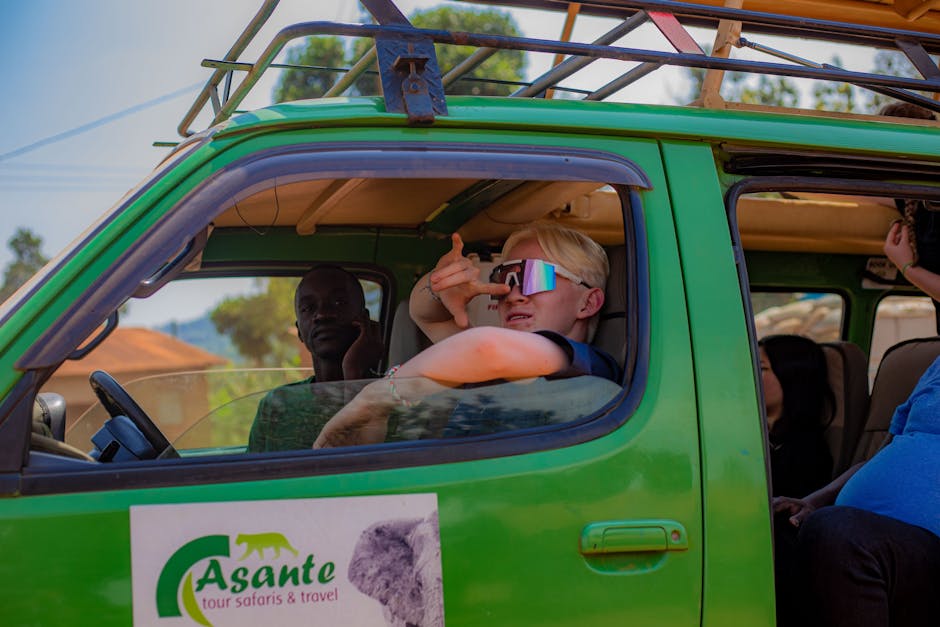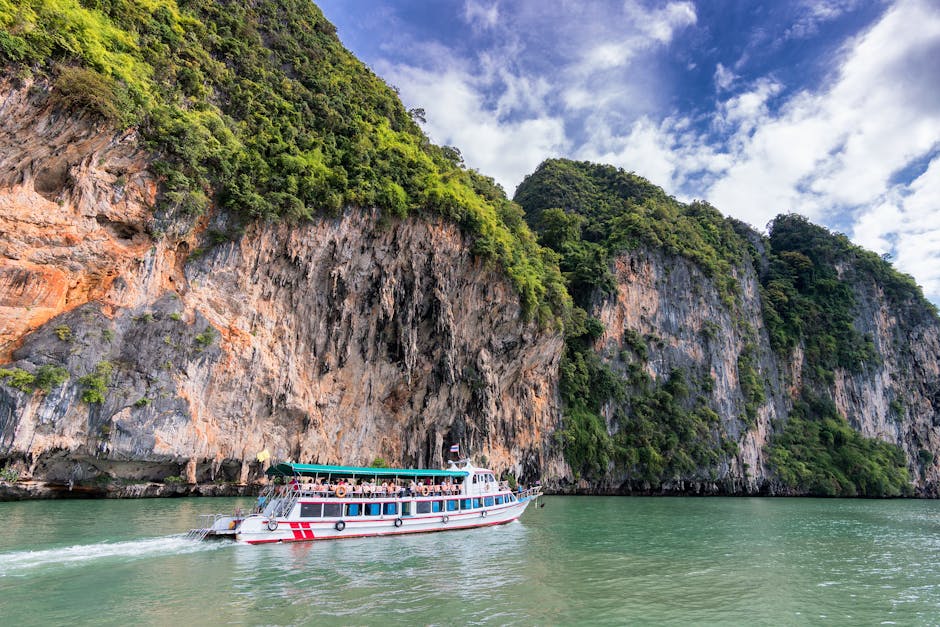Navigating the Intricate Web of African Adventure
Africa's adventure tourism sector transcends mere safari sales; it's a complex, interwoven tapestry. Envision a sprawling, vibrant ecosystem, akin to a boundless acacia savanna, where every component – from the Maasai guides expertly navigating Serengeti grasslands to the international carriers transporting eager adventurers – plays a pivotal, interconnected role. This delicate equilibrium, however, is perpetually threatened by unsustainable practices, jeopardizing the very fabric of this exceptional industry.
Mass tourism's relentless expansion poses a considerable threat to fragile environments. Picture, if you will, a vital watering hole, the life source for a majestic elephant herd, overwhelmed by an unrelenting influx of vehicles and sightseers. This stark reality confronts numerous African wildlife preserves. Habitat degradation, pollution, and the disruption of wildlife routines create formidable obstacles to the long-term viability of this sector. Locally-owned and operated tour companies represent a vital counterpoint to this unsustainable trend. These enterprises, often smaller in scale, cultivate unique, immersive experiences that directly enrich local communities.
The tension between economic advancement and cultural preservation presents another formidable challenge. The surge in tourist arrivals can lead to the commercial exploitation of indigenous traditions, eroding their authenticity and cultural significance. This resembles the gradual deterioration of a priceless artifact, constantly handled and displayed without the necessary care, its inherent value diminishing over time. The meticulous safeguarding and respectful presentation of indigenous cultures within the tourism framework requires careful consideration and deliberate action. Sustainable practices are further hampered by infrastructure inadequacies and regulatory inconsistencies. A lack of reliable transport networks, insufficient waste management systems, and ambiguous environmental regulations pose significant hurdles for operators committed to responsible business practices. This is akin to constructing a dwelling upon shifting sands—the foundation remains unstable, making the entire structure susceptible to collapse.
Innovative models are emerging to confront these difficulties. Community-based tourism initiatives, where local communities assume direct ownership and management of tourism operations, are gaining considerable momentum. These models directly empower local populations, fostering economic opportunities while nurturing environmental stewardship. Fair trade precepts, emphasizing equitable pricing and ethical sourcing, also hold increasing sway, ensuring a more equitable distribution of tourism's benefits.
The Ascendance of Ethical Travel and its Profound Impact
A heightened global consciousness regarding ethical and sustainable travel is dramatically reshaping Africa's adventure tourism landscape. Consumers are becoming increasingly discerning, demanding transparency and accountability from the businesses they patronize. This paradigm shift presents both formidable challenges and extraordinary opportunities for the sector.
Adapting to this evolving landscape requires a steadfast commitment to transparency and demonstrably sustainable operations from businesses. This necessitates investment in environmental protection programs, the implementation of robust waste management strategies, and the adoption of fair labor practices. Merely claiming sustainability is insufficient; concrete actions and verifiable data must substantiate these claims. The goal is not simply to fill tour buses, but to cultivate a reputation that attracts discerning, ethically-minded travelers.
The effects of responsible tourism extend far beyond mere financial gains. Prioritizing community engagement and environmental preservation allows the industry to contribute to lasting, positive transformations across Africa. This includes supporting local enterprises, preserving cultural legacies, and investing in the education and empowerment of local populations. It’s not merely about economic profits, but about building a brighter future for all stakeholders.
Consider the cascading benefits of a thriving community-based tourism initiative. Employment opportunities are created, local economies prosper, and the environment is shielded from harm. It's a virtuous cycle, where the enterprise's success contributes directly to community well-being and environmental protection. This stands in stark contrast to extractive tourism models that deplete resources and leave behind minimal lasting benefits for the local inhabitants.
For conscientious travelers, responsible tourism demands thorough research and well-informed decision-making. This means looking beyond slick marketing campaigns and actively seeking out businesses with verifiable sustainability credentials. While it may entail slightly higher costs, the peace of mind derived from knowing your travels contribute to positive change is invaluable. It's about aligning personal values with travel choices, investing in a more equitable and sustainable future for African communities and wildlife. This transcends the superficial safari experience, engaging with the very soul of African adventure tourism.
African adventure tourism's enduring success – its very survival – hinges inextricably on a resolute commitment to sustainable practices. This isn't merely a moral imperative; it's the bedrock of sound business strategy. The industry's destiny is intertwined with its capacity to mitigate environmental harm, engender equitable economic prosperity, and safeguard the very lifeblood of its existence: the breathtaking wildlife, the vibrant cultures, and the stunning landscapes that draw adventurers from across the globe. Think of it as a seasoned rancher meticulously managing their herd and grazing lands – sustainable practices are the prudent stewardship ensuring future abundance.
Protecting these irreplaceable assets is not merely about damage limitation; it’s about proactive conservation. Envision a luxury safari lodge strategically reinvesting a generous portion of its earnings into aggressive anti-poaching initiatives or ambitious habitat restoration projects. This forward-thinking strategy not only safeguards the environment but exponentially enhances the visitor experience, creating a virtuous cycle of environmental and economic growth. It's the difference between a neglected orchard and one meticulously pruned and nurtured to yield a bountiful harvest.
Empowering local communities isn't just a commendable ethical goal; it's the cornerstone of true sustainability. When indigenous populations are active participants in tourism planning and management – true stakeholders – their inherent vested interest ensures the preservation of their ancestral lands and cultural heritage. This collaborative approach transforms tourism from a potentially exploitative enterprise into a catalyst for transformative development, equitably distributing benefits throughout the community. It's a symphony of shared purpose, where every instrument contributes to a harmonious whole.
The compelling financial advantages of sustainable tourism are readily apparent. Empirical data unequivocally demonstrates that enterprises prioritizing environmental and social responsibility attract a fiercely loyal, highly engaged clientele, yielding significantly enhanced revenues and profitability. This translates to a powerful brand equity – a reputation for ethical conduct and sustainability commands premium pricing and fosters unparalleled brand loyalty.
Ultimately, the trajectory of African adventure tourism rests on embracing sustainability not as a restrictive burden, but as a potent competitive edge. Forward-thinking businesses that champion ethical conduct, environmental guardianship, and community development will undeniably flourish in the burgeoning realm of responsible travel. The era of reactive damage control is definitively over; proactive, sustainable practices are paramount for the sustained health and prosperity of the African adventure tourism sector and, indeed, the entire continent.





